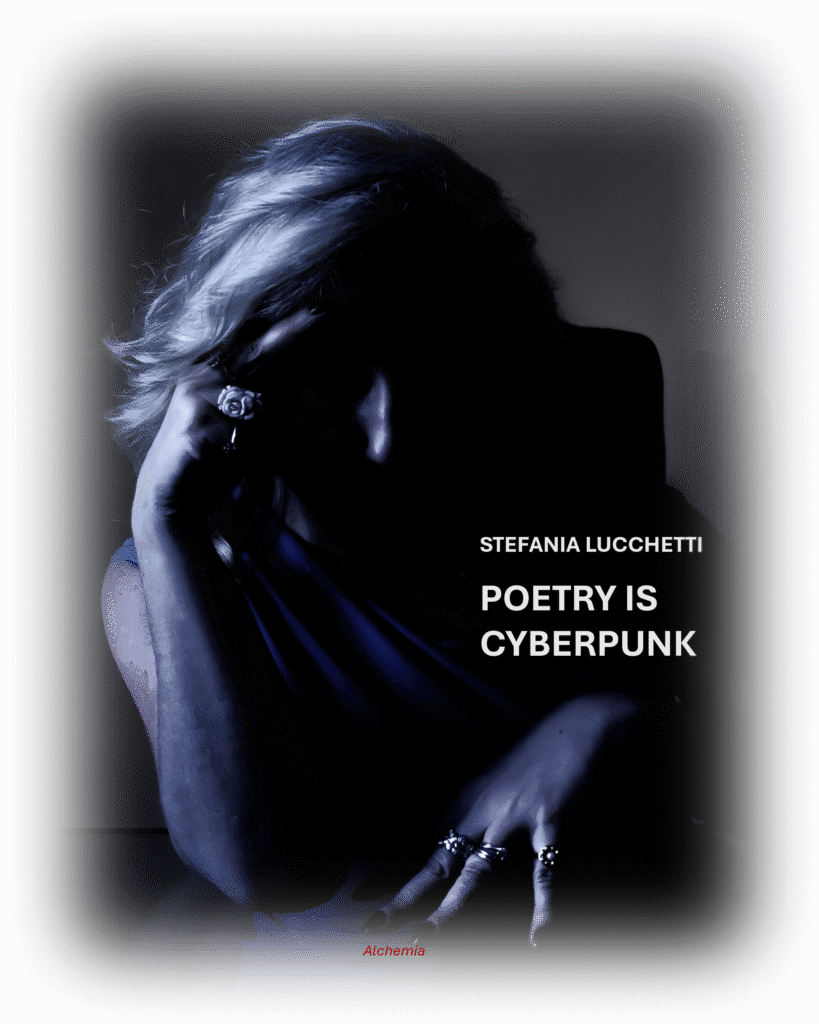Cover photo: Italian contemporary author Stefania Lucchetti, in her office in Milano, Italy
Where does your inspiration come from?
For me, writing is born as an intimate and necessary gesture: it is the attempt to hold on to what slips away, to transform the everyday into meaning, to give a voice to all the moments of life, even the most confused and ambiguous ones.
In my texts, I try to give space to all the stories, emotions, and thoughts that escape linear narratives, but which preserve the deepest sense of existence.
So, is poetry part of life?
For me, poetry is a daily act.
It is the possibility of slowing down one’s gaze within a reality that by its very nature forces us into superficiality and speed.
Poetry, therefore, for me is not an escape, but a radical return to the present, a way of reconnecting with what is happening around us.
Poetry thus becomes an exercise in resistance and care: resistance against the homogenization of thought, and care for oneself and others through attention. An act of presence that compels us to stop, to listen, to name.
Writing means opening a space of encounter. It is not only about expressing my own voice, but about generating resonances in the other: the reader, in turn, brings their own experiences and transforms the text into something alive and shared.
You write in two languages – Italian and English.
Yes, a central element of my work is also its bilingual dimension. Translation is never just linguistic transposition, but an exercise in crossing: it allows one to glimpse new nuances, to slip between two linguistic and cultural identities, to put different worlds into dialogue. Writing in two languages means multiplying horizons, and at the same time finding a common root in the humanity that unites us.
What does it mean to write poetry?
For me, writing poetry is an act of creation and revelation at the same time. Every chosen word, every evoked image, seeks to build a bridge between soul and thought, a bond that transcends time and space.
With Poetry is Cyberpunk, I hope to offer not only words, but also moments of thought, keys to reading a complex emotional universe.
Every feeling, even the most intense and seemingly fragmented, has a place and a voice, becoming part of being, of flowing, of becoming—with the hope of touching hidden strings and awakening new emotions, in the brief time each of us is given.
La poesia è cyberpunk – Poetry is Cyberpunk by Stefania Lucchetti reinvents the poetic language of the 21st century.
Poetry is Cyberpunk is the English language edition of well loved Italian contemporary poet Stefania Lucchetti’s La poesia è cyberpunk published in Italy by Gruppo Albatros Il Filo. No longer a muse but a warrior, Stefania Lucchetti’s lyrical voice in Poetry is Cyberpunk reinvents the poetic language of the 21st century. A poetic revolution blending technology, existentialism, and lyricism.. In an era dominated by biotechnology, artificial intelligence, and virtual reality—where the boundary between the real and the digital dissolves—Stefania Lucchetti offers poetry as an act of rebellion and human resistance. Her poetic voice breaks away from traditional myths and embraces a new dimension: that of cyberpunk—a world made of neural networks, algorithms, and a “lyrical dark web,” where human identity struggles to emerge amid an increasingly dystopian reality. Poetry is Cyberpunk is a lyrical journey that merges clear and powerful verses capable of expressing the soul’s fragile struggle between technology and humanity. Lucchetti becomes a hacker of cognition, a poet and rebel, proposing an alternative grammar and a language that breaks from traditional punctuation to give voice to the depths of being. With cultural references to the fathers of cyberpunk, like William Gibson and Philip K. Dick, the collection explores new paradigms of existence -from data capitalism to digital pervasiveness -offering the reader a haunting and captivating mirror of our present. Published in both Italian and English, the book is also a tribute to the author’s bilingualism, sharing an authentic dialogue between two languages, two sensibilities, two worlds. A work that not only speaks of poetry but reinvents it as a tool of resistance, existential philosophy, and defiance against dehumanization.



